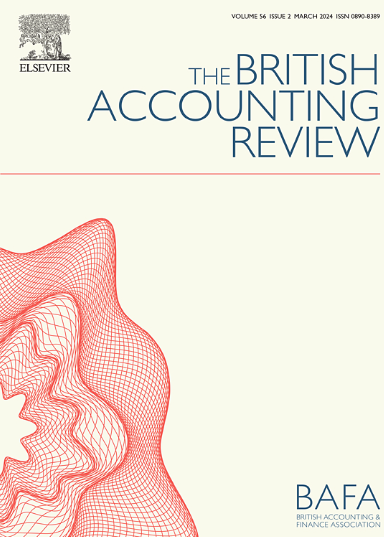Institutional investor ESG activism and exploratory green innovation: Unpacking the heterogeneous responses of family firms across intergenerational contexts
IF 9.4
3区 管理学
Q1 BUSINESS, FINANCE
引用次数: 0
Abstract
This paper investigates the heterogeneous responses to institutional investor ESG activism by expanding reference point theory among non-family firms and family firms with different intergenerational contexts. Using a Chinese family firm database comprising 14,425 observations from 2012 to 2020, this study finds that institutional investor ESG activism is more likely to stimulate exploratory green innovation in family firms than in non-family firms. Such linkage between institutional investor ESG activism and exploratory green innovation is stronger in second-generation family firms than in first-generation firms. Furthermore, this study explores the moderating roles of family involvement and financial slack in first- and second-generation family firms as they respond to institutional investor ESG activism. Specifically, both family involvement and financial slack can enhance the positive impact of institutional investor ESG activism on exploratory green innovation in the context of second-generation family firms. The moderating effect of family involvement is not significant, whereas the moderating effect of financial slack turns into be negative in the context of first-generation family firms. Our study highlights the heterogeneous responses to institutional investor ESG activism of family firms with different intergenerational contexts.
机构投资者的环境、社会和治理行动主义与探索性绿色创新:解读不同代际背景下家族企业的异质反应
本文通过扩展参考点理论,在不同代际背景下的非家族企业和家族企业中研究了机构投资者ESG行动主义的异质反应。利用2012年至2020年中国家族企业的14425个观察数据,本研究发现,与非家族企业相比,机构投资者ESG行动主义更有可能刺激家族企业的探索性绿色创新。机构投资者ESG行动主义与探索性绿色创新之间的这种联系在第二代家族企业中比在第一代家族企业中更强。此外,本研究探讨了家族参与和财务松弛在第一代和第二代家族企业对机构投资者ESG激进主义的反应中的调节作用。具体而言,家族参与和财务宽松都可以增强机构投资者ESG行动主义对第二代家族企业探索性绿色创新的积极影响。在第一代家族企业背景下,家族涉入的调节作用不显著,而财务松弛的调节作用变为负向。我们的研究强调了不同代际背景下家族企业对机构投资者ESG行动主义的异质反应。
本文章由计算机程序翻译,如有差异,请以英文原文为准。
求助全文
约1分钟内获得全文
求助全文
来源期刊

British Accounting Review
BUSINESS, FINANCE-
CiteScore
8.60
自引率
3.90%
发文量
39
审稿时长
76 days
期刊介绍:
The British Accounting Review*is pleased to publish original scholarly papers across the whole spectrum of accounting and finance. The journal is eclectic and pluralistic and contributions are welcomed across a wide range of research methodologies (e.g. analytical, archival, experimental, survey and qualitative case methods) and topics (e.g. financial accounting, management accounting, finance and financial management, auditing, public sector accounting, social and environmental accounting; accounting education and accounting history), evidence from UK and non-UK sources are equally acceptable.
 求助内容:
求助内容: 应助结果提醒方式:
应助结果提醒方式:


